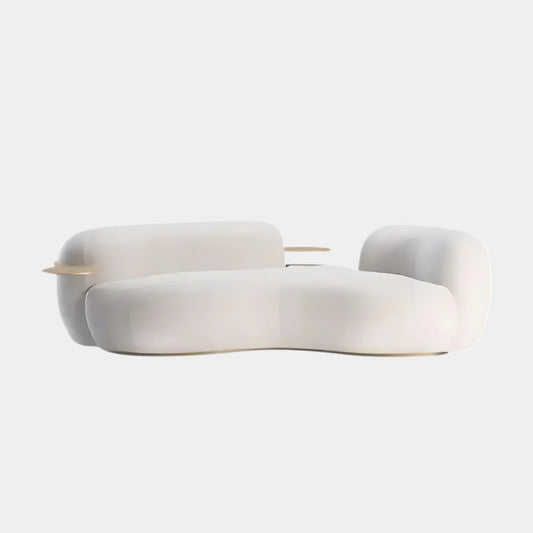A solid wooden bed serves as a timeless focal point in your bedroom and is an investment that will last for many years. with grace. Whether it's a classic teak frame, a sleek engineered wood design, or a handcrafted solid wood piece, your bed deserves thoughtful maintenance to preserve its durability and charm for years.
At Decolide, we believe great furniture should last a lifetime. In this blog, we’ll guide you through the essential wooden bed care tips, including daily maintenance, protection from wear, cleaning methods, and do’s and don’ts to ensure your bed looks and functions like new.
Why Wooden Beds Require Special Care

Wood, being a natural material, responds to its environment. It can expand, contract, scratch, or warp based on temperature, moisture, and daily use. When properly cared for, wooden beds age elegantly, unlike frames made of metal or plastic.
Poor maintenance can cause even high-quality wood to deteriorate.
-
Cracks and joint loosening
-
Termite or insect damage
-
Scratches and dents
-
Fading or discoloration
The good news? Regular care doesn’t take much effort—just consistency and a few smart habits.
Daily, Weekly & Seasonal Care for Wooden Beds

Here’s a simple breakdown of how often you should care for different parts of your wooden bed:
|
Task |
Frequency |
Notes |
|
Dusting and wiping |
Weekly |
Use a dry cloth or a soft microfiber cloth. |
|
Checking joints/screws |
Monthly |
Tighten loose hardware to avoid creaking or wobbling |
|
Polishing or oiling |
Every 3–6 months |
Based on wood type (teak, oak, acacia) |
|
Deep cleaning and inspection |
Twice a year |
Look for hidden moisture, cracks, or termite signs |
|
Mattress rotation |
Quarterly |
Even wear improves both bed and mattress lifespan |
Do’s and Don’ts: Caring for Wooden Beds

Let’s simplify care with this quick Do’s and Don’ts table:
|
Do’s ✔️ |
Don’ts ❌ |
|
Use coasters or pads under décor items |
Don’t place wet items directly on wood |
|
Maintain a consistent indoor humidity level |
Don’t expose the bed to direct sunlight for long hours |
|
Clean with a dry or slightly damp soft cloth |
Avoid using harsh cleaners or detergents |
|
Use a mattress protector to reduce spills/stains |
Don’t overload under-bed storage (if applicable) |
|
Check for termite activity in humid climates |
Don’t drag or push the bed frame on the floor |
Tip #1: Dust and Wipe Regularly
Dust buildup can cause minor surface scratches, dullness, and eventually affect the finish. Every week, use a dry duster or a soft microfiber cloth. For areas around corners or headboards, a soft brush attachment with a vacuum can help.
Avoid using wet cloths unless necessary, and always follow with a dry wipe to ensure moisture doesn’t seep into the wood.
Tip #2: Protect Against Moisture and Sunlight
Wood reacts to moisture and heat, which means your wooden bed can:
-
Swell or shrink with humidity
-
Develop cracks or splits over time
-
Fade due to prolonged exposure to sunlight
What you can do:
-
Place the bed away from windows or use curtains to block UV rays.
-
Avoid placing the bed near heaters or air conditioners.
-
Use a dehumidifier in monsoon-prone areas or coastal regions to prevent moisture absorption.
Tip #3: Avoid Harsh Cleaners
Many commercial cleaning sprays contain ammonia or bleach, which can strip the natural oils or protective finish from your wooden bed.
Instead, try this:
-
To stop moisture absorption, use a dehumidifier in coastal or monsoon-prone areas.
-
Gently clean with a damp microfiber cloth (do not soak).
-
Immediately follow with a dry cloth.
For deeper nourishment, use wood-safe oils or conditioners once every few months—especially for unfinished or oil-finished beds.
Tip #4: Prevent Scratches and Dents
It’s easy to unintentionally damage wooden surfaces during everyday use. Whether it’s sharp-edged decor, heavy suitcases, or shifting the bed without lifting—it all adds up over time.
Preventive tips:
-
Add felt pads or rubber stoppers under lamp bases or frames on your headboard.
-
Avoid sitting or standing on the edges (especially corners).
-
When rearranging furniture, lift instead of dragging.
-
Keep pets’ nails trimmed if they often jump on the bed.
Tip #5: Maintain Structural Integrity
Wooden beds can develop creaks, squeaks, or loose joints due to natural wear. If ignored, these minor issues can weaken the structure over time.
Make it a habit to:
-
Tighten bolts and screws every few months.
-
Check the slats and supporting rails—especially if the bed is frequently moved.
-
Look underneath the bed for signs of wood chipping or termites.
Tip #6: Rotate the Mattress Regularly
Believe it or not, caring for your mattress helps preserve your bed frame too.
Heavy mattresses create uneven pressure on the bed’s support structure over time. Rotating the mattress every 3–6 months helps distribute weight more evenly, reducing stress on one side of the frame.
This also prevents sagging, creaking, and long-term structural imbalance.
Tip #7: Use Storage Beds Carefully
If your wooden bed comes with built-in storage (hydraulic or drawer-based), ensure:
-
You don’t overload the storage space.
-
All mechanisms are functioning properly.
-
You clean the inside compartments regularly to avoid mold or pests.
To prevent damage to the frame or strain on the hinges, always gently close drawers or lids.
Final Thoughts on How to Maintain and Care

A well-maintained wooden bed not only extends its life but also enhances the overall aesthetic and functionality of your bedroom. With simple practices like regular cleaning, protective care, and attention to detail, your bed will continue to provide comfort and style for many years.
At Decolide, we design beds with premium materials that are made to last. Whether you choose a modern storage bed or a timeless solid wood frame, following these care tips will help you make the most of your investment.
Looking for a wooden bed that combines durability, design, and storage?
Explore Decolide’s curated bed collection and bring home the perfect piece for restful, worry-free sleep.












